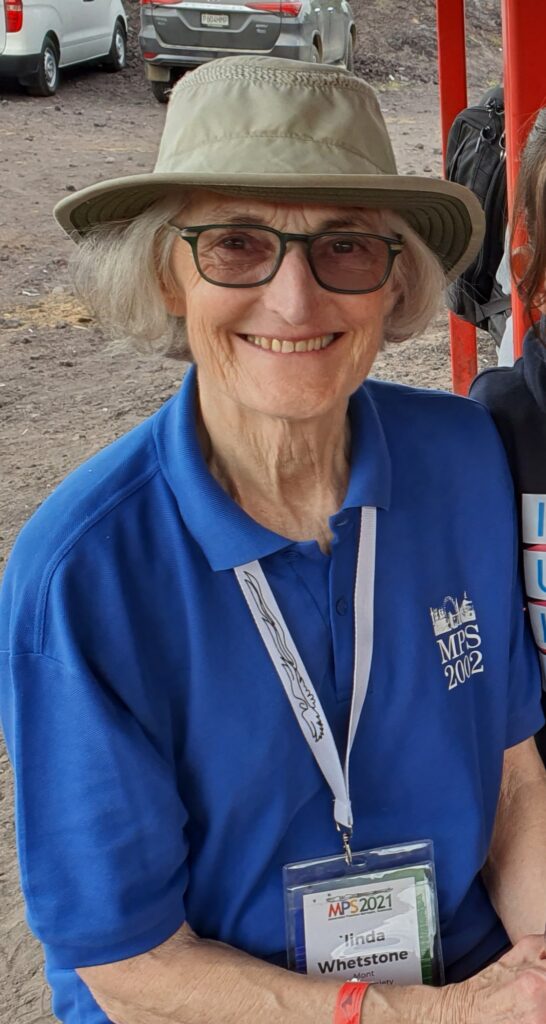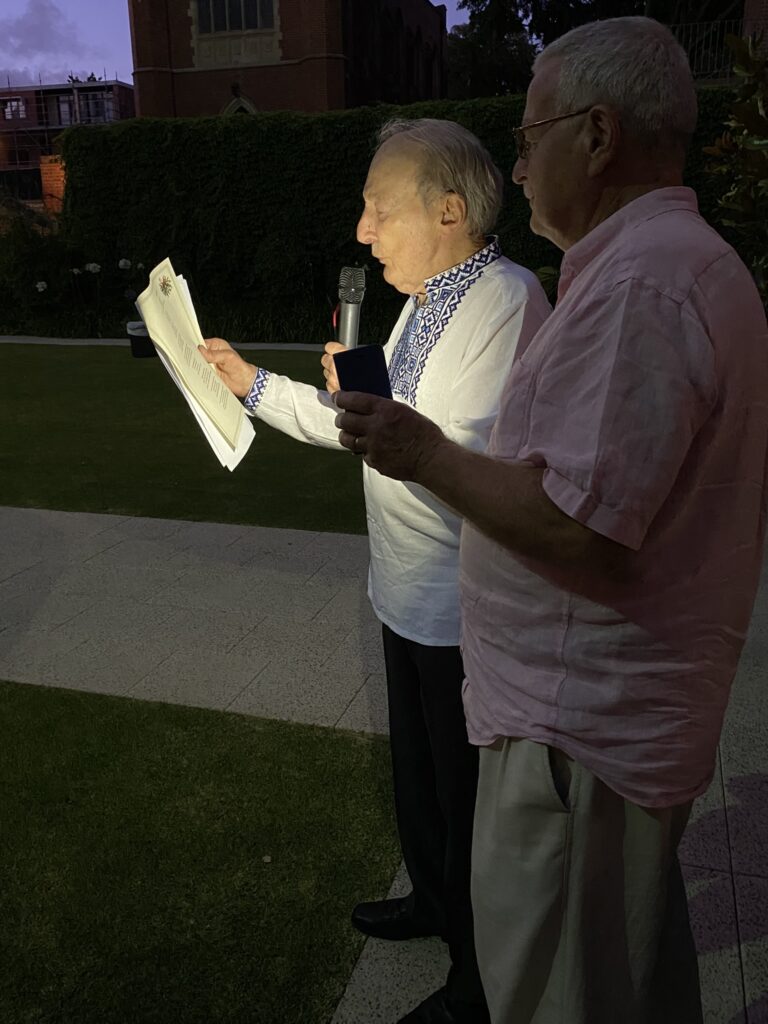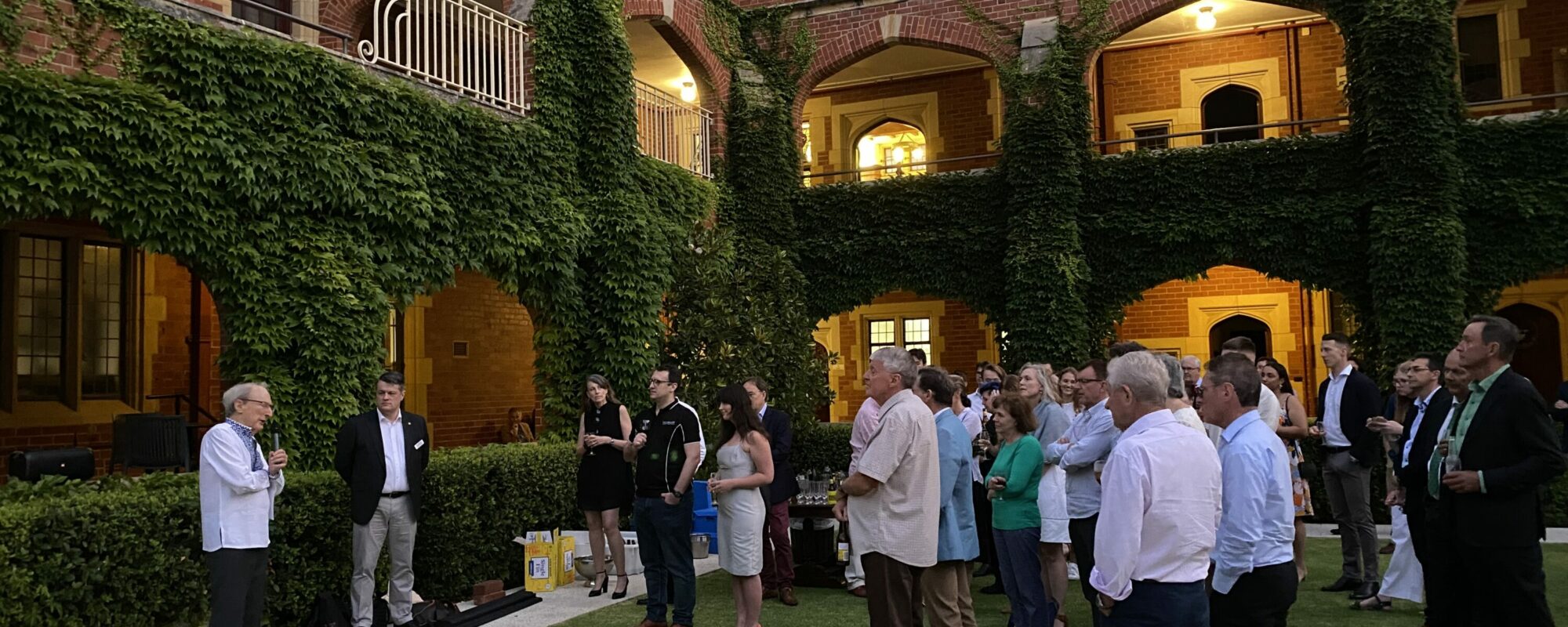1. A note of sadness
2. Hope for the future
Linda Whetstone RIP

November 19, 2021
I have just been advised of the sudden passing of one of the heroes of the International Freedom Movement.
Linda Whetstone was Chairman of Network for a Free Society and a member of the boards of the Institute of Economic Affairs, Atlas Economic Research Foundation, Mont Pelerin Society, Istanbul Network for Liberty, and of course, British Dressage.
A career, and a life, spent in the service of promoting human flourishing.
Our hearts go out to the many people in so many parts of the world whose lives have been touched by Linda’s caring and nurturing.
We have much to do, to continue her work.
Coincidentally my ‘Part Two’ that follows covers the influence of Linda and her father Sir Antony Fisher.
For all the things you don’t know about Linda Whetstone, watch my YouTube interview below right through to the end.
Hope for the future
My message to Mannkal’s scholars and supporters
Some thoughts are still rattling around in my mind, as I return from the Mont Pelerin Society events in Guatemala.
Let me share some of these thoughts with you.
For the first week, I was engaged in board training (and I must say this is the most interesting board that has been my pleasure on which to serve). I was confronted with a real-life board as was described by one of the greatest management gurus, Tom Peters, in his book Liberation Management. Tom Peters was greatly influenced by Hayekian structures, where so much more can be achieved by doing less. More on this later.
The second week I participated in the Mont Pelerin Society General Meeting, held in Guatemala, where we were hosted by the University Francisco Marroquin (UFM), one of the most outstanding universities in the world.
One of their secrets is to accept absolutely no government funding whatsoever. And their formula works.
It is based purely on academic standard and merit. Again, more to follow on this remarkable university.
During that conference week I was continually reminded of the number of successful Mannkal scholars who have become permanent team members at the many host Think Tanks around the world.

At one evening event, I was asked to expand on the four main influences behind the creation of our Mannkal Foundation.
You may already know the four individuals who influenced me the most, with their influence deeply embedded into Mannkal.
They are Leonard Read, the Founder of the Foundation for Economic Education and one of the founders of the Mont Pelerin Society.
Second is the philosopher, Prof. John Hospers.
Third is Prince Philip and the fourth, Prof. F.A. Hayek.
Now, so many years later, upon analysing the four they were totally different in their style and execution. Hence, my title for these comments tonight.
I will now rank each of the four by allocating percentages of philosophy / economics on the one hand versus strategy on the other.
Leonard Read: 50% of his style and effectiveness was in philosophy and economics and the other 50% in strategy. It is important to get the right knowledge, but you must do something with it. So, Leonard Read was 50 / 50 with a style of execution that was low key. That was his concept of leadership and leadership training. A form of leadership by example. He felt we only have a license to change ourselves. We do not have a license to go around telling people what they should think. We need to educate ourselves and turn each one of us into a beacon. If the beacon shines brightly, other people will follow. You can only take an idea to the threshold of someone’s consciousness and then you must back off. If they accept that idea, then it is with them for life. Leonard Read certainly had that effect on me at the age of 16.
I had no idea then that, now, 69 years later, I would be appointed to the Board of the Mont Pelerin Society. The Mont Pelerin Society has been central to the international free market movement for 75 years.
Now, 69 years to graduate to the Board may seem like a lengthy career path, but if you asked me, I would say that “I exceeded my expectations.”
That was Leonard’s strategy. Slowly and surely and it was effective.
Then there was Prof. John Hospers. He was 100% philosophy: zero strategy. He was all about knowledge. Philosophy was the beginning and end of his world, but strategic action did not really matter. John Hospers just wanted to be a great teacher and he was. This is illustrated in a recently published book with individual chapters written by so many of us: Libertarianism: John Hospers, the Libertarian Party’s 50th Anniversary, and Beyond.
Then, Prince Philip? No philosophy, absolute zero but this was his success. If he had any philosophical input into his Commonwealth Study Conferences, then he would have had arguments between the trade unions, commerce and the government people. These were the three warring parties he sought to bring together to create a better British Commonwealth. We did not like each other at the beginning of the 3 weeks. However, after the end of the 3 weeks and being locked up and traveling together we understood each other and that there was a common goal of ‘just getting on with it’, as Prince Philip used to say.
So, if he had introduced any philosophy, he would have been taking sides. He was completely neutral and that was his effectiveness.
F.A. Hayek, on the other hand, was a bit like Leonard Read – 50/50. 50% was the economics / philosophy and the other 50% was his strategic advice. Hundreds of people wrote to Hayek just to get guidance on what they should be doing to be more effective.
Sir Antony Fisher was one example and a perfect one. He came back as a war-time fighter pilot hero from WWII. He came back and witnessed England in terrible shape. Antony had read Hayek’s condensed version of The Road to Serfdom and wanted to go into politics. He knew he had to firstly meet with Hayek and organised to meet him at the London School of Economics where he told Hayek he wanted to go into politics. Hayek advised him not to go into politics, “you will just become like all the other politicians and in the end the results will not be what your goals are. Instead go and start a Think Tank, get people together like yourself. Generate a lot of ideas. Always remember politicians are not leaders, they are followers. You must get the public to start accepting these ideas, then the politicians will follow those ideas because they think there are votes in it.”
However, he suggested Antony Fisher, did not proceed with that plan immediately but make some money first, because you cannot achieve anything unless you have enough money to finance it. So, Fisher looked at going with the chicken business and ultimately became the biggest chicken farmer in England – Buxted Chicken. Fisher, an amazing man, is father to Linda Whetstone, our current Mont Pelerin Society President. Just one hell of a man. On his chicken journey he went to America where he discovered the chickens were better. Bigger, with twice as much meat on them and a different breed of chicken. The breed that existed in England was scrawny in comparison because they were all controlled by government boards – there was no competition.
He then attempted to get permission to bring back some of these chickens to breed in England. However, he could not get permission. The bureaucracy again. They had a Government Egg Board. So around about a week or two before Easter, Fisher went to America, got half a suitcase of fertilised eggs, wrapped them all up so that they looked like Easter eggs, brought them back in his bag, got them through Customs and started breeding the super chickens and became the biggest chicken producer in the U.K. Then, with that capital he established the IEA and then the Manhattan Institute and then the Pacific Institute. He was populating the world with Think Tanks, and he then started the Atlas Network. What a story! And all from Hayek’s advice. The power of a single person giving the right advice is immeasurable.
Now, back to our Mannkal Foundation
You might have noticed that there was a slight re-alignment in Mannkal’s programs during the year and this was essential.
You may have wondered, “was this re-alignment really necessary?”
Yes, most certainly, as we were receiving comments from our Ambassadors and former students indicating that they were sensing a mission drift.
Many of you have sought clarification from various sources but it would be best if you sought clarification direct from myself or our Mannkal team who now have Mannkal’s program fully focused and in complete synchronisation with our stated mission of ‘opening your minds to opportunities and new ways to build a society in which freedom may be effectively preserved’.
With my engineering background I am always seeking to measure our progress, on a regular basis. So, how are we doing right now and into the future?
As in the river of life, you will be challenged with tributaries from time to time, but the longer-term rewards go to those who stay in the program on a long-term basis.
Now, as a concrete example of that, I would like to share with you an email I just received from one of our former Mannkal scholars, from 2017, Tej Patel, who attended FEE in Dec. 2017 / Feb. 2018 and the Mont Pelerin Society meeting South Korea in May, 2017.
Tej emailed me, as follows and, I share it, with his permission:
“Ron, I was reaching out to let you know the influence Mannkal has had on my life views and career. I have, since moved out of Perth, and into the heart of government in Canberra working as a consultant on infrastructure projects. I have since been able to see how inefficient government is at allocating capital and hope to make a continuous difference.
I always remember the ideas learnt and free market views through my time at MPS South Korea and Foundation for Economic Education in Atlanta.
I was reaching out to continuous learning about free market ideals and would like to become a member of the Mont Pelerin Society having attended the one in Seoul, South Korea. Would you kindly be able to nominate me for the membership?
Also, I would like to continue to be an ambassador and if there’s anyone I can meet in Canberra happy to touch base.”
There will be times in your own careers, perhaps several years hence, when a thought that may have been rattling around in your mind during your Mannkal experience, suddenly clicks and you realise that it has a very clear relevance to your own career, and then that is when we welcome you to recontact us at any time. Mannkal is a long- term project.
In conclusion I wish you a happy festive season, and please watch out for my Festive Poem next week.
Regards,
Ron

6 Comments
Ron,
This was one of your finest essays – on the styles of the 4 leaders. It occurs to me that there’s a most useful, brief (125-150 pages) book in embryo here – a more in-depth exploration of each these four styles, with real-world examples of how that style produced the desired results – the circumstances that made that style a good fit; the challenges this particular approach faced and surmounted. End with, say, a list of several analogous leaders of that style for further reading.
What would make this book especially valuable is that there seems to be an unspoken assumption that a model like Leonard Read’s is the One True Model to which all who would inspire must conform. It’s a brilliant model – but it’s not suited to all temperaments and/or circumstances. The temptation, especially for younger leaders, is try to force themselves into a clearly successful mold that’s ill-suited to their personality or situation. How liberating – how inspiring – to be presented with at least 3 other, proven approaches to successful economic leadership – to know one can be a Prince Philip in thorny circumstances and still “get the job done” – and done brilliantly! Or that the more retiring role of the philosopher-teacher can be at least as effective as being an activist mounting the bulwarks in the public eye.
All four types are effective – done right. And all four are needed.
I just loved this essay. Dr. Johnson said, of Paradise Lost, “None ever wished it longer.” Well, had Dr. Johnson read your essay, he’d have wanted it longer, indeed!
Warmest regards,
Laurie
Laurie P. Morrow, Ph.D., CAP®
Once moved, her will, like a battering ram, would knock down the obstacles her wits could not surmount.
– Alcott, “A Modern Cinderella,” from Shoes and Stockings
Dear Ron ,
I have just read your speech about the 4 major influences in your thinking . It was very good and thought – provoking . Mannkal and its scholars are a great credit to you . You observed that it is a “long term project “. May Mannkal , and you , enjoy and endure a very long term , spreading important and inspiring ideas and principles . Not bad for a boy from Kal ! All the best for the festive season .
Regards,
Malcolm McCusker
Dear Ron,
Your Special Message covers Mannkal training. You do it so well, adopting HRH Prince Philip’s mantra: “Get on with it”. Merry Christmas – the New Year will bring great opportunities to get the Governments out of our hair. They are all wallowing.
Regards,
John CSC 1962
Dear Ron,
Thank you for another amazing and memorable Christmas note. I am privileged to learn from you but also reassured that deep thinking continues to be well and alive among us.It has been unfortunate to have missed so many opportunities to meet and discuss various matters and looking forward to seeing the end of this pandemic so we can meet. I am delighted to continue supporting Mannkal and looking forward to future opportunities.
In the meantime, I wish you and your loved ones, a Merry Christmas and a Happy and Healthy New Year!
Kind Regards,
Peter
Very interesting Ron,
Of the protagonists you mentioned, I am fairly confident that Hayek had the greatest influence on me but so did Read and I remember Fisher’s example well.
Sorry to hear of Linda Whetstone’s death. Keep up the struggle.
Cheers,
John Hyde
Dear Ron,
I just wanted to drop you a note to let you know my thoughts are with you, following the loss of our beloved Linda. We are all still reeling from the loss, not least as we were with her in Miami for the past few days, being her usual vibrant expansive and oh so kind and generous with her time. She was such a vital part of IEA life, and for me personally a mentor, ally and dear friend.
But I know your friendship with Linda spans decades rather than years and the pain that much deeper. As she once said to me, ‘Angela, if I am the Queen of Liberty, then Ron (you!) is the King!’. And she was seldom wrong.
Many will want to mark her time on this planet and the enormous change she brought (and will bring for decades to come) and not least the IEA. But that, and that will wait for another day.
For now I just wanted to send you hugs from across the seas and let you know we are thinking of you.
PS I watched your interview with her last night (filmed in 2014 i think in her home) and thought it one of the best videos to remember her by, and a wonderful treasure for us all to have. Thank you.
With much love and best wishes from all of us here.
Angela
Angela Harbutt.
The Institute of Economic Affairs.
London